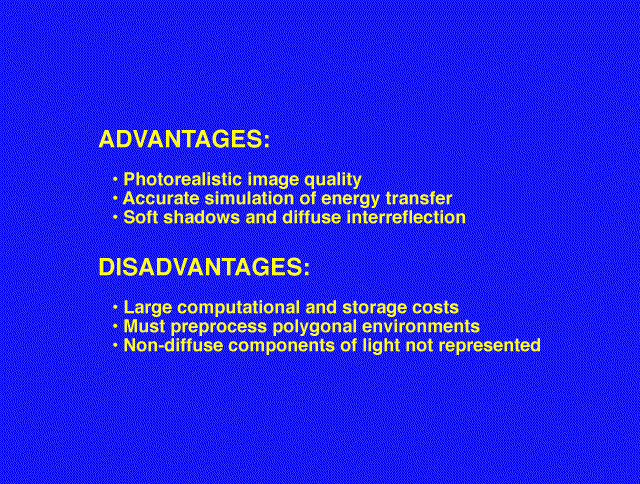
The largest single advantage of the radiosity method for computer image generation is the highly realistic quality of the resulting images. No other method accurately calculates the diffuse interreflection of light energy in an environment. Soft shadows and color bleeding are natural by-products of this method, just as hard shadows and mirror-like reflections are natural by-products of a typical ray-tracing algorithm.
In addition to being visually pleasing, the method can be quite accurate in its treatment of energy transport between surfaces. The viewpoint independence of the basic radiosity algorithm provides the opportunity for interactive 'walkthroughs' of environments, as one intensity solution for an environment will serve as the base for any particular view of the environment.
The costs associated with the radiosity method are substantial. The 'full matrix' radiosity method requires a large amount of storage and long computation times for form factor calculation and matrix solution. The 'progressive' method must also calculate a large number of form factors, many more than once.
Accuracy in the resulting intensity solution requires preprocessing the environment, subdividing large surfaces into a set of smaller surfaces, and more surfaces means more storage and computation.